What is the secret to weight loss? The secret is that there is no secret.
Sorry. I had to get your attention somehow, but I am not here to promote skinny teas or snake oil. Rather, I am just here to reiterate what you probably already know. There are simply no real shortcuts to lasting weight loss.
Let’s back up a bit.
Fad diets will come and go. Anywhere you look in the media, we are bombarded with them, and all I can do over here is continue to share sound advice and bring it back to the boring basics that actually work– and help you ignore the massive amount of crap that is spewed out there! But I know it can be very tempting to try the latest craze and see if celery juice really is the one thing that will finally work for you. It would be nice if weight loss was as easy as buying “fit tea” or drinking vegetable juices, but the truth is that it takes hard work, time and patience.
The thing is, most diets will work at first. You may, for example, lose a bunch of weight when you first go keto. Naturally, considering you have just eliminated an entire food group! But is it going to last? Are you going to keep the weight off? Is keto sustainable for you?
The problem is not how to achieve weight loss, but more so how do we maintain weight loss. Because sooner or later, you are going to have a special occasion to celebrate and will want that piece of cake or that bottle of wine, and you may realize that Keto might not be sustainable for you or that much fun! A 30 day program is appealing for quick results, and so is a very restrictive diet; it feels like the more rules there are and the more you are restricting, the more results you should expect in return and the faster they’ll come. But unless you are willing to live like this long term, none of these “quick fixes” will be the real solution to the problem you are trying to solve.
Most diets tend to be too restrictive to be sustainable. Before starting any new program, you should really pause and ask yourself: “do I enjoy eating this way and can I see myself eating this way forever?” If the answer is no, then you don’t have a long term solution to your problem. Research shows that people who lose weight quickly tend to also rebound quickly, usually with a few extra pounds on.
I swear, I am not saying it’s a lost cause. I am simply saying it will probably require more time and patience than you want it too and you will need to change your lifestyle to include habits that will help you not only lose weight, but also maintain the weight loss. You need to stop looking for a new diet and start making some actual lifestyle changes. There are MANY diets that work, but most diets– and most successful dieters– have key points in common which we will address today.
Lasting weight loss has less to do with cutting out sugar for 30 days and more to do with getting 7 hours of sleep and eating 8 servings of vegetables consistently (you will notice me saying that word a lot!). It’s a lot easier to blame sugar than it is to take an honest look at ourselves and realize that we are the sum of our actions. It’s easier for some to wrap themselves around absolutes: no sugar, no carbs! No fun! Moderation is a lot harder to learn. The all or nothing mindset is often one of the biggest factors keeping you stuck where you are.
I am less concerned with someone who eats a balanced diet that also includes some sugar than I am with someone who is either all or nothing. We all have that friend who does the Whole30 3 times a year but yet never seems to learn anything from it. Small changes and daily habits are not sexy, but they are at the basis of every successful program.

How do we lose weight?
- Calories. You need to be in a calorie deficit to lose weight. You can get there in many ways, but you can’t change that fact.
- Macronutrients. Your calories determine your body weight on the scale, but your macronutrients ratios will determine your body composition.
- Lifestyle. Your lifestyle is what facilitates all of this and it needs to be in line with your goals.
- Consistency. My favourite word, but also the glue that holds everything together.
Seems simple enough. Again, I know it isn’t. But yes, this is the secret to weight loss.
Let’s dig into this.
Calories:
Managing your calories is number 1! How much you eat determines your body weight. This is not to say that food quality doesn’t matter, but for the sake of weight loss, calories in versus calories out trumps everything else. If you are not losing weight, you are still eating too much. There is a lot of conflicting information out there, but this fact is still true. If you eat more than you burn, you can’t lose weight.
Quality matters to the effect that it impacts your health and how you feel. You can technically lose weight eating only McDonalds (check this out if you don’t believe me ( https://www.independent.co.uk/life-style/weight-loss-diet-fat-mcdonalds-calories-nutrition-super-size-me-ryan-williams-exercise-a8632016.html ). But I am pretty sure you would feel pretty poorly.
On top of feeling pretty poorly, eating mainly processed foods tends to leave you still hungry. Meaning lower quality food tends to be easy to over eat and is not really satisfying. Try to think of the last time you ate too many apples or chicken breast. The answer is most likely going to be never. But you can probably remember a time where you ate too much ice cream or too many french fries. A diet that is composed of mainly whole foods will be more satiating. When trying to lose weight you should prioritize minimally processed whole foods. Filling up on low-calorie fruits & veggies will automatically displace more calorie-dense, less filling foods you likely WOULD eat. We like to promote food volume and eating in a way that keeps hunger at bay.
How do we determine calories? There are a lot of fancy calculators (one we love is this one: https://www.precisionnutrition.com/nutrition-calculator ) and formulas to determine this, and they all work to some extent. But we need to remember that our bodies are unique and individual and you will need to do some experimentation here. At PowerUp, we start by first taking a food diary for a few days to determine someone’s current eating habits. We also take into account their age, current body weight and activity levels.
Your goal should always be to lose weight on as many calories as possible. We want to cut calories just enough to see results, but not so much that it makes it too hard for you to sustain or that you feel terrible. Food is fuel; if we cut down too drastically, people tend to drop all activity and negate the calorie deficit we created, even if it’s unintentional. Studies show that people that aren’t eating enough calories tend to fidget less. Our bodies are smart, and if we starve them, they will go into survival mode.
Again, this information can be found by yourself, however we strongly suggest working with a qualified coach to ensure that you set yourself up for long term success and do this the right way.
Macronutrients:
While your calories determine your body weight, your macronutrients will determine your body composition. Body fat versus lean muscle mass. Which is one of the reasons we are very passionate about the macros based approach we are using.
Of all the micronutrients, getting your protein number right is number 1. Especially if you are seeking fat loss, not just weight loss. Adequate protein intake is somewhere between 0.7 to 1.2g per pound of BW in order to build and retain lean muscle mass and prevent sarcopenia*. Where you fall on that range will depend on individual goals, current body composition and also personal preference. Dieters on higher protein tend to lose the most amount of body fat vs lean muscle mass. Additionally, higher protein will help stabilize blood sugars, which will in turn stabilize energy and hunger. Protein is the most satiating macronutrient, which means that when you eat more protein, you tend to be less hungry, which is important when on a diet.
*Sarcopenia is a natural process that comes with aging where we lose lean muscle mass, buy strength training regularly and eating adequate amount of protein we can slow down that process.
To determine protein intake, we start with the 0.7 to 1.2 grams per pound of BW like mentioned above. Someone with a lot of weight to lose could use target body weight as a guide. A smaller, leaner individual will be on the higher range of protein and a larger individual with more fat mass will be on the lower range. Other factors can determine your needs, like if you are in a steep calorie deficit or in a muscle building phase, you may require more protein.
This is where all good weight loss journeys need to start. First, determining calories needed for weight loss, then determining proper protein intake and looking at individual macronutrient needs.
When it comes to weight loss, you have more flexibility on where you set your fat and carbs. I am not pro-carbs or pro-fat. I am here to help you find out what will work best for you and your lifestyle. A lot of it will come down to lifestyle and personal preference. In terms of results, both approaches work, wether one prefers low-carbs or low-fat or moderate on both.
And lastly, since we don’t live in a lab, we also need to address lifestyle, because this can easily make or break your diet. You need to set your life up in a way that makes success inevitable. How do you do that? By focusing on developing habits that you can maintain and building an environment that support them.
Lifestyle +Consistency:
I love working out. I have trained consistently 4-6 days a week for the last 18 years or so. Before Crossfit, it was running. After Crossfit, it might be something else. What is important to me is moving often. I don’t even need to think about it, it’s a part of who I am and I just do it consistently without having to think about it too much.
My diet took a bit more work to get to this place.
How can we make packing our lunches for work, grocery shopping and meal planning on the weekend, and eating protein at every meal feel like second nature? It needs to be something we do out of habit and discipline, not just for a short time out of being on a diet and feeling restricted.
Cooking and prepping your meals should not be something you “have to do”, just like going to the gym is hopefully not something you “have to do” but something you “choose to do” because you value your health and fitness. I don’t think about these things anymore, they just happen and they are just part of the lifestyle I have adopted that keeps me in line with my nutrition goals.
Now I am not saying that I am perfect all the time, and neither should you be. A lifestyle is meant to have flexibility. If the changes you make to your diet stay solid 80% of the time, the other 20% is not a problem unless you make it one. Chasing perfection means chasing failure. Understand that you want to build a lifestyle, not a prison to live in.
This makes a strong argument towards small changes and daily habits versus extreme approaches and crash diets. These may be a harder buy-in as everyone else is promising you extreme results, but the type of approach that generates rapid results is nearly always impossible to stick too. You need to understand that in order to maintain the results you see, you will need to maintain the habits that got you there. That’s what we want to talk about today, the “unsexy” stuff that will get you long term results. We need to optimize your lifestyle to support lasting weight loss.
What daily habits do successful dieters have in common?
- They eat at home and prepare their own meals.
- They are eating balanced meals instead of snacking all day.
- They sleep enough (adults need 7-9 hours on average).
- They limit alcohol and processed foods.
- They eat more produce.
- They lead an active lifestyle. More than just gym goers, think 8,000+ steps a day.
- They manage stress in their lives.
Which brings our last point, and probably the most important one. Your diet (and lifestyle) doesn’t need to be perfect, but it needs to be consistent. That means not “starting fresh” every Monday only to fail again every weekend, not gaining and losing the same 5 pounds every time you have a beach vacation.
Yes, you can enjoy your holidays and special occasions. But you also need to grow up and realize that bingeing (wether it’s food or alcohol) is neither a part of a healthy lifestyle or a healthy coping mechanism for stress. And while I do love a good meal out and will continue to do so without guilt, I also understand that not every occasion can be treated like our last meal on earth. In my experience, while it may seem scary to stop chasing fast weight loss and instead choose to change your lifestyle, if you stop restrictive dieting you will eventually stop resorting to bingeing behaviours and behaving poorly around food and special occasions.
Most diets fail not because of the diet, but because we fail to understand that we don’t need to try a new diet; instead, we need to change our lifestyle permanently. Your lifestyle and habits can make or break you. Yes, calories matter, but you need to set your life up in a way where you can follow your diet and stick to it.
So, to recap.
- Calories.
- Macronutrients – Protein.
- Lifestyle + Consistency.
How do we do it at PowerUp?
We use a macronutrients based approach with our clients. We love it for many reasons but mostly because it is flexible. It is a great way to go from a more restrictive type of dieting to a more flexible approach where no food is off limits and the focus is on finding balance.
Taking proper time to weigh and measure your food and finding the right balance for you can set you up for long term success. The macros based approach allows you to learn proper portions, understand what is in your plate, and visualize what 30g of protein actually looks like. For example, before tracking macros many people believed that peanut butter is a great source of protein, when in reality it is a great source of fat with some protein!
Being tied to a food scale or a phone app may not sustainable for everyone, and we understand this. It’s also not necessary for someone to stay on the program forever.
Currently, I track as needed throughout the year. And I believe coach Kate does the same. For example I might set goals for weight loss OR have a Crossfit competition coming up and I might track more diligently for a period of time.
But wether I track or not, I eat very similarly because I did it long enough to understand my portions and what needs to be in my plate.
To recap once more.
- Figure out the amount of daily calories needed for weight loss. Your goal should always be to get results on as many calories as possible. The reason for this is that you will plateau eventually and you’ll want to have room to cut calories safely. This also ensures that you can maintain weight loss on more calories in the end.
- Determine protein intake.
- Determine proper macronutrients intake. Some people will prefer more fat and less carbs and feel better that way, and vice-versa. One is not better than the other, you’ll just need to find a balance that is best for you. The only thing I will say is that a higher carb diet is the preferred source of fuel for high-intensity exercise. Since you are all into Crossfit, going extremely low-carb would not be advisable long term for your performance and recovery needs.
- Manage your lifestyle! Learn to cook. Sleep 7-9 hours. Moderate your alcohol intake. Move daily. Exercise frequently but not too much.
- Be patient and persistent. Be flexible. Unless you have a food intolerance, I find it best to have as few restrictions as possible. There’s no such thing as good or bad food. Yes, a donut can fit into your macros, but a salad will go a longer way in keeping you full and satiated. Learn how your food choices affect your success.
- And if you can, get coaching. A coach will be there to make adjustments and keep you progressing on top of keeping you accountable to someone other than yourself.
Let’s aim to be the best version of ourselves. Set goals that are realistic and healthy for us and in line with the lifestyle we want and enjoy. Have questions, comments or interested in coaching? We would love to hear from you.
Annie 🙂



